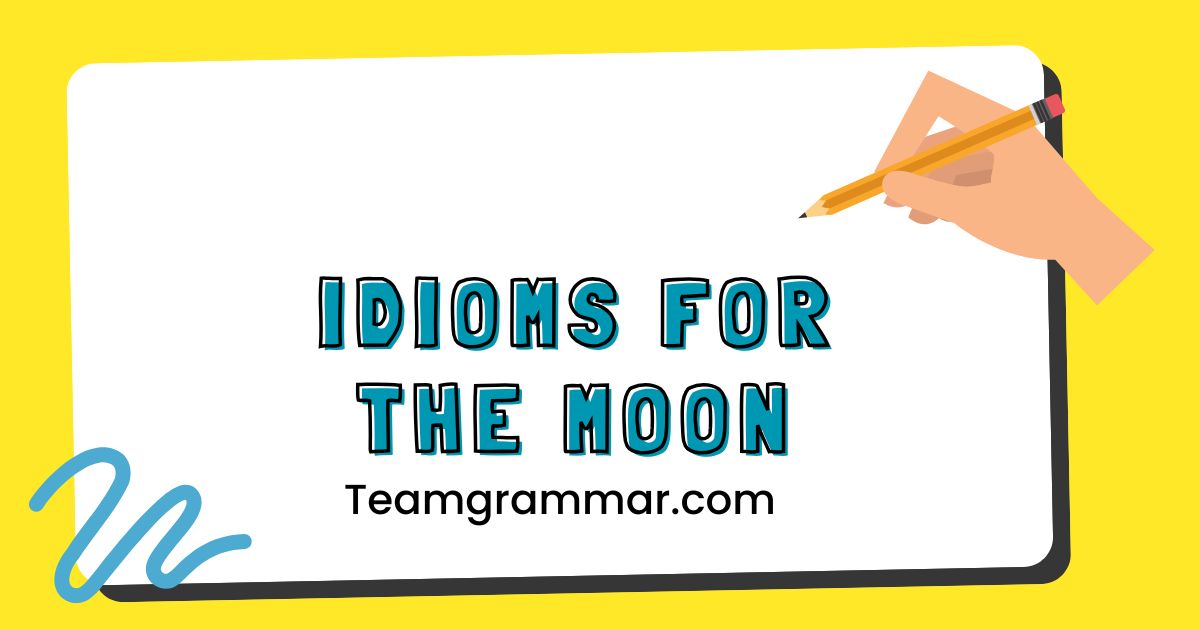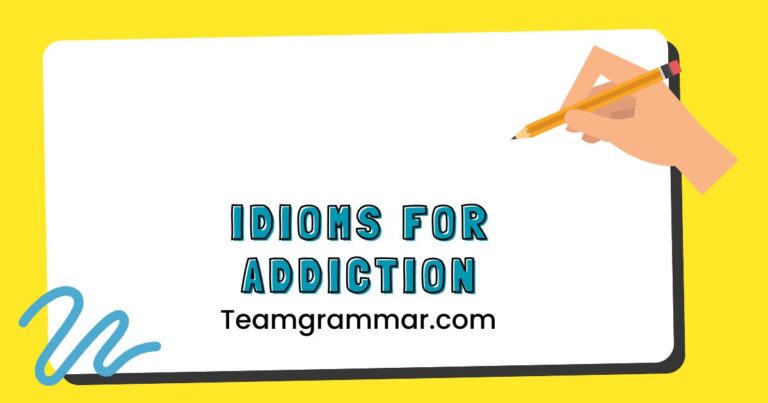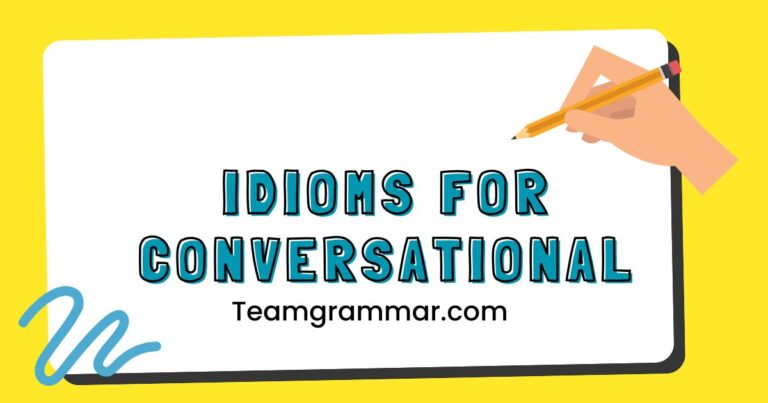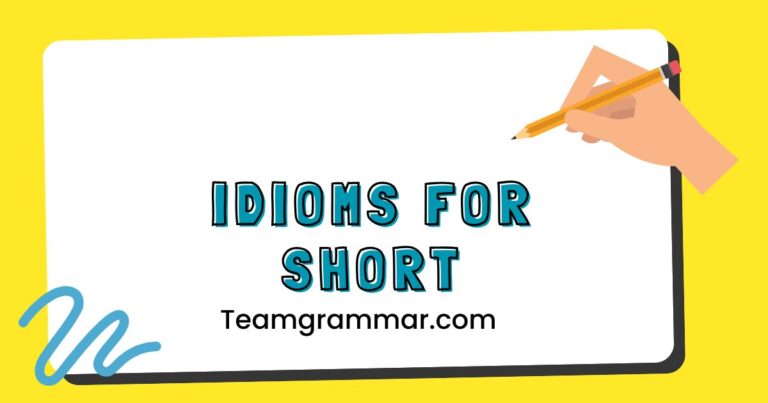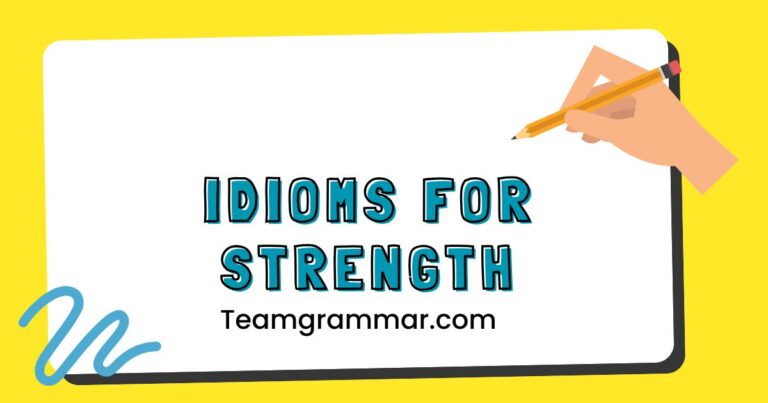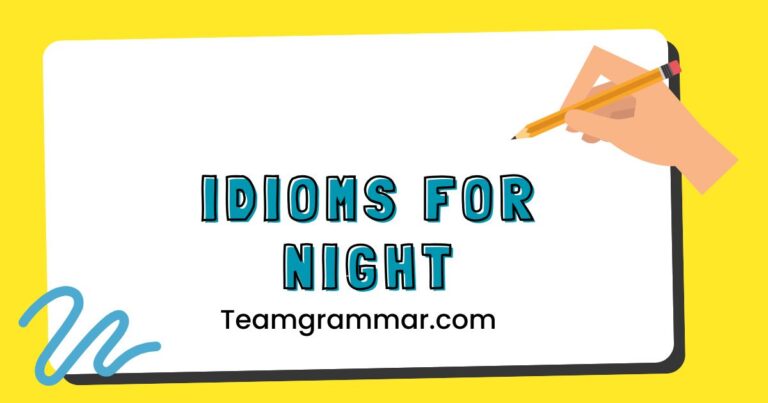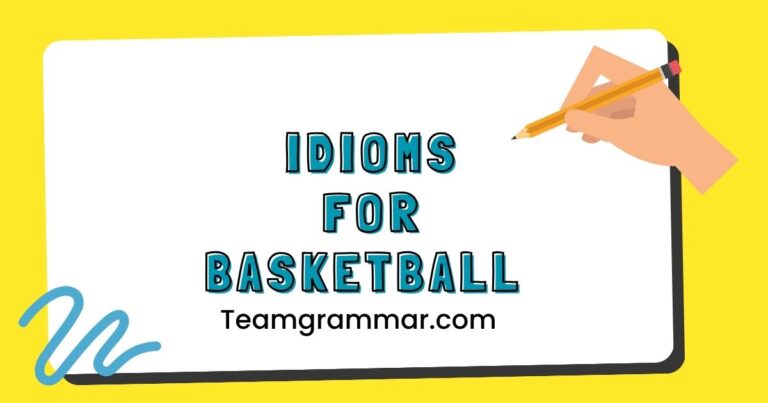43 Idioms for the Moon: A Comprehensive Guide to Lunar Expressions
Idioms enrich the English language, adding color and depth to our conversations and writing. Lunar idioms, in particular, draw on the mystique and familiarity of the moon to convey a range of meanings, from the whimsical to the profound.
Understanding these idioms is essential for grasping nuanced communication and appreciating the cultural context in which they are used. This guide is designed for English language learners, writers, and anyone fascinated by the power of language to explore the evocative world of moon-related idioms.
By mastering these expressions, you can enhance your linguistic skills and express yourself with greater precision and creativity.
Table of Contents
- Introduction
- Definition of Idioms for the Moon
- Structural Breakdown of Lunar Idioms
- Types and Categories of Moon Idioms
- Examples of Moon Idioms
- Usage Rules for Moon Idioms
- Common Mistakes with Moon Idioms
- Practice Exercises
- Advanced Topics in Lunar Idioms
- Frequently Asked Questions
- Conclusion
Definition of Idioms for the Moon
An idiom is a phrase or expression whose meaning cannot be understood from the literal meanings of the individual words. Instead, it carries a figurative or symbolic meaning that is culturally specific.
Idioms related to the moon leverage our understanding of the moon’s characteristics – its phases, its association with romance, its distance, and its perceived influence on human behavior – to convey complex ideas in a concise and memorable way. These idioms often serve to emphasize a point, add humor, or evoke a particular mood.
Lunar idioms are classified asfigurative language, specifically falling under the category ofidiomatic expressions. Their function is primarily communicative, aiming to add depth and color to language beyond literal interpretation.
The contexts in which these idioms are used vary widely, ranging from casual conversation to formal writing. They are particularly prevalent in literature, poetry, and song lyrics, where their evocative power can be fully realized.
Structural Breakdown of Lunar Idioms
The structure of lunar idioms varies depending on the specific phrase. Some are simple phrases, while others are more complex clauses or sentences.
It’s important to recognize that the individual words in the idiom do not contribute directly to the overall meaning. Analyzing the structure involves understanding the context and recognizing the idiomatic nature of the expression.
Many lunar idioms include the word “moon” directly, while others allude to lunar characteristics without explicitly mentioning the moon. For example, “once in a blue moon” directly refers to the moon’s color (though metaphorically), whereas “reaching for the stars” implies an aspiration that is as far away as the moon.
Understanding these structural variations is key to correctly interpreting and using these idioms.
The patterns in lunar idioms are diverse, reflecting the wide range of meanings they convey. Some patterns involve comparisons, such as “over the moon,” which compares a feeling of extreme happiness to being beyond the earth and close to the moon.
Other patterns involve actions or states of being, such as “shoot for the moon,” which suggests aiming for an ambitious goal. Recognizing these patterns can help learners anticipate and understand new lunar idioms they encounter.
Types and Categories of Moon Idioms
Moon idioms can be categorized based on the themes or concepts they represent. Here are some common categories:
Romantic Connotations
Many moon idioms are associated with romance, love, and dreams. The moon has long been a symbol of romance, inspiring poets and lovers for centuries.
These idioms often evoke feelings of longing, passion, and ethereal beauty.
Foolish or Absurd Behavior
Some moon idioms describe actions or ideas that are considered foolish, silly, or impractical. These idioms often use the moon to represent something unattainable or unrealistic.
Impossible or Unrealistic Expectations
Certain lunar idioms highlight the futility of pursuing impossible goals or expecting unrealistic outcomes. These idioms often serve as cautionary tales, reminding us to be grounded in reality.
Changeable or Unpredictable Nature
The moon’s phases and its ever-changing appearance have led to idioms that describe things that are fickle, unstable, or unpredictable. These idioms often emphasize the transient nature of life and the importance of adaptability.
Emotional States
The moon can be associated with different emotional states, such as happiness, sadness, or madness. These idioms often reflect the perceived influence of the moon on human emotions and behavior.
Examples of Moon Idioms
This section provides a comprehensive list of examples, categorized by theme, to illustrate the diverse range and meanings of moon idioms.
Romantic Connotations
The moon has always been associated with romance and love. Many idioms use the moon to describe feelings of love, longing, and enchantment.
The following table provides examples of idioms with romantic connotations:
| Idiom | Meaning | Example Sentence |
|---|---|---|
| Over the moon | Extremely happy or delighted. | She was over the moon when he proposed. |
| Moonstruck | Bewildered or romantically infatuated. | He was completely moonstruck by her beauty. |
| To ask for the moon | To ask for something impossible or unreasonable. | He’s asking for the moon if he thinks she’ll forgive him that easily. |
| Promise the moon | To make extravagant promises that are unlikely to be fulfilled. | Politicians often promise the moon during election campaigns. |
| Harvest moon | A full moon occurring near the time of the autumnal equinox. | The harvest moon cast a romantic glow over the fields. |
| Moonlight and roses | A romantic or idyllic situation. | Their relationship was all moonlight and roses at the beginning. |
| To moon over someone | To pine for someone romantically. | She spent weeks mooning over him after they broke up. |
| Under the same moon | Sharing the same world or experiences. | Even though they live far apart, they are still under the same moon. |
| Honey moon | A vacation spent together by a newly married couple. | They went to Italy for their honeymoon. |
| To reach for the moon | To pursue an ambitious or seemingly unattainable goal. | He reached for the moon and actually became a successful entrepreneur. |
| Many moons ago | A long time ago. | Many moons ago, we used to visit this place. |
| Blue moon | A rare occurrence. | A chance like this comes only once in a blue moon. |
| To shoot for the moon | To aim for a very high goal. | If you’re going to try something, shoot for the moon. |
| To think the moon is made of green cheese | To be gullible or naive. | Only someone who thinks the moon is made of green cheese would believe that story. |
| Over the hills and far away | A distant, romantic place. | They dreamed of living over the hills and far away. |
| Moon River | Evokes a dreamlike, romantic journey or aspiration. | The song Moon River always makes me feel nostalgic. |
| Once in a blue moon | Very rarely. | I only go to the theater once in a blue moon. |
| Moon face | A round, full face. | She has a lovely moon face. |
| Mooncalf | A foolish or absent-minded person. | He’s such a mooncalf, always forgetting things. |
| To howl at the moon | To complain or protest in vain. | They’re just howling at the moon if they think they can change his mind. |
| A pie in the sky | An unrealistic or unattainable goal. | Their plans are just a pie in the sky. |
| Fly me to the moon | A romantic desire to escape to a magical place. | He sang “Fly me to the moon” to her. |
| Paper moon | A temporary or artificial backdrop for a photo, symbolizing fleeting moments. | They took a photo in front of the paper moon at the carnival. |
Foolish or Absurd Behavior
Some moon idioms depict foolish or absurd behavior. These idioms often use the moon as a symbol of something unattainable or nonsensical.
The table below provides examples:
| Idiom | Meaning | Example Sentence |
|---|---|---|
| Think the moon is made of green cheese | To be gullible or naive. | Only a fool would think the moon is made of green cheese. |
| Bark at the moon | To waste effort on something futile. | Arguing with him is like barking at the moon. |
| Cry for the moon | To desire something impossible. | He’s crying for the moon if he expects her to come back. |
| To believe that the moon is made of cheese | To be easily fooled. | He must believe that the moon is made of cheese if he trusts everything she says. |
| To have a bee in one’s bonnet | To have an obsession or fixation on something foolish. | She has a bee in her bonnet about conspiracy theories. |
| Mad as a March hare | Completely insane. | He’s as mad as a March hare after being locked up for so long. |
| Out to lunch | Absent-minded or not paying attention. | He seems a bit out to lunch today. |
| Not the sharpest tool in the shed | Not very intelligent. | He’s not the sharpest tool in the shed, but he’s kind. |
| A few sandwiches short of a picnic | Not very intelligent. | He’s a few sandwiches short of a picnic, if you know what I mean. |
| Off one’s rocker | Crazy or eccentric. | He’s been off his rocker ever since the accident. |
| Batty | Slightly crazy. | She’s a bit batty, but I like her. |
| Bonkers | Crazy or silly. | He’s gone completely bonkers. |
| Loony | Crazy or foolish. | He’s a bit of a loony, but harmless. |
| Nuts | Crazy or insane. | He’s driving me nuts with his constant complaining. |
| Round the bend | Crazy or eccentric. | She’s gone completely round the bend. |
| Screwy | Crazy or odd. | That’s a screwy idea. |
| Touched | Slightly crazy. | He’s a little touched, but harmless. |
| Crackers | Crazy or eccentric. | They’re all crackers in that family. |
| Dafty | Foolish or silly. | Don’t be such a dafty. |
| Dippy | Foolish or silly. | He’s a bit dippy, but well-meaning. |
| Daft as a brush | Very foolish. | He’s as daft as a brush. |
| Not all there | Not fully mentally present or aware. | He’s not all there today. |
| One brick short of a load | Not very intelligent. | He’s one brick short of a load. |
Impossible or Unrealistic Expectations
Some idioms use the moon to represent impossible or unrealistic expectations. These idioms often serve as a warning against pursuing unattainable goals.
The table below provides examples:
| Idiom | Meaning | Example Sentence |
|---|---|---|
| Ask for the moon | To demand something impossible or unreasonable. | He’s asking for the moon if he thinks he can get a promotion after only a month. |
| Promise someone the moon | To make extravagant promises that cannot be kept. | He promised her the moon, but he never delivered. |
| Cry for the moon | To want something impossible. | It’s pointless to cry for the moon; accept what you have. |
| To aim for the moon | To set an impossibly high goal. | While it’s good to be ambitious, aiming for the moon might lead to disappointment. |
| To reach for the stars | To try to achieve something very difficult or impossible. | While it’s good to reach for the stars, be realistic about your abilities. |
| A castle in the air | An unrealistic dream or plan. | Their plans to build a business without any capital are just a castle in the air. |
| Pie in the sky | An unrealistic or unattainable goal. | His promises of a better future are just pie in the sky. |
| Dreaming in technicolor | Having unrealistic or overly optimistic dreams. | She’s dreaming in technicolor if she thinks she can become a movie star overnight. |
| Chasing rainbows | Pursuing something unattainable. | He’s been chasing rainbows his whole life. |
| Building castles on sand | Creating something that is likely to fail. | They’re building castles on sand if they think they can succeed without a proper plan. |
| Living in a fool’s paradise | Being happy because you are not aware of potential trouble. | They’re living in a fool’s paradise if they think their problems will disappear on their own. |
| Clutching at straws | Desperately trying anything to find a solution. | They’re clutching at straws trying to save their failing business. |
| Waiting for the ship to come in | Waiting for good fortune to arrive. | He’s been waiting for his ship to come in for years. |
| Waiting for pigs to fly | Waiting for something that will never happen. | I’ll believe it when pigs fly. |
Changeable or Unpredictable Nature
The moon’s phases and ever-changing appearance have led to idioms that describe things that are fickle, unstable, or unpredictable. The table below provides examples:
| Idiom | Meaning | Example Sentence |
|---|---|---|
| As changeable as the moon | Very fickle or unpredictable. | Her mood is as changeable as the moon. |
| Mooning around | Wasting time aimlessly. | He spent the whole day mooning around the house. |
| Under the moon | Secretly or illicitly. | They met under the moon to discuss their plans. |
| Go through phases | To experience periods of change or fluctuation. | Children go through phases of interest in different activities. |
| A fair-weather friend | Someone who is only a friend when things are going well. | He’s a fair-weather friend; he disappears when you need him most. |
| Blow hot and cold | To alternate between being enthusiastic and uninterested. | He blows hot and cold about the project. |
| On again, off again | Intermittent or inconsistent. | Their relationship is on again, off again. |
| Like a weathercock | Easily influenced or changeable. | He’s like a weathercock, always changing his opinion. |
| A rolling stone gathers no moss | Someone who is always moving cannot settle down. | He’s a rolling stone, never staying in one place for long. |
| Here today, gone tomorrow | Temporary or fleeting. | Trends are here today, gone tomorrow. |
Emotional States
The moon can be associated with different emotional states, such as happiness, sadness, or madness. The table below provides examples:
| Idiom | Meaning | Example Sentence |
|---|---|---|
| Over the moon | Extremely happy. | She was over the moon when she got the job. |
| Moonstruck | Bewildered or romantically infatuated. | He was moonstruck by her beauty. |
| Howling at the moon | To complain or protest in vain. | They’re just howling at the moon if they think they can change the policy. |
| Mad as a hatter | Completely insane. | He’s mad as a hatter after spending so much time alone. |
| Driven to distraction | Extremely annoyed or frustrated. | His constant complaining is driving me to distraction. |
| Beside oneself | Overcome with emotion. | She was beside herself with joy when she heard the news. |
| Down in the dumps | Sad or depressed. | He’s been down in the dumps since he lost his job. |
| On cloud nine | Extremely happy. | She’s been on cloud nine ever since she met him. |
| Up in arms | Angry and protesting. | The community is up in arms about the new development. |
| At the end of one’s rope | Having no more patience or endurance. | I’m at the end of my rope with his behavior. |
Usage Rules for Moon Idioms
Using moon idioms correctly requires understanding their specific meanings and contexts. Here are some general rules to follow:
- Context is key: Pay attention to the situation in which the idiom is used. The context will often provide clues to its meaning.
- Audience awareness: Consider your audience when using idioms. Some idioms may not be familiar to everyone, especially non-native speakers.
- Avoid overuse: Using too many idioms can make your language sound unnatural or contrived.
- Proper tense and grammar: Ensure that the idiom is used with the correct tense and grammatical structure.
- Cultural sensitivity: Be aware that some idioms may have different connotations in different cultures.
Exceptions and Special Cases:Some idioms may have variations in wording or usage. It’s important to be aware of these variations and use the most appropriate form for the context.
For example, “over the moon” is generally used to describe extreme happiness, but it can also be used sarcastically in certain situations.
Common Mistakes with Moon Idioms
One common mistake is interpreting the idiom literally. For example, taking “over the moon” to mean physically above the moon, rather than extremely happy.
Another mistake is using the idiom in an inappropriate context, such as using a romantic idiom in a business setting.
Here are some examples of common mistakes:
| Incorrect | Correct | Explanation |
|---|---|---|
| She was literally over the moon. | She was over the moon with excitement. | “Over the moon” is a figurative expression, not a literal one. |
| He promised me the moon for my birthday. | He promised me the world for my birthday. | “Promise the moon” implies unrealistic promises, while “promise the world” is more general. |
| They are crying for the moon to get a new car. | They are crying for the moon if they think they will get a new car without working. | “Crying for the moon” means wanting something impossible, not simply wanting something. |
Practice Exercises
Test your understanding of moon idioms with these exercises. Fill in the blanks with the appropriate idiom from the list below:
Idiom List: Over the moon, Once in a blue moon, Asking for the moon, Moonstruck, Think the moon is made of green cheese, Howling at the moon, As changeable as the moon, To reach for the moon, Under the moon, Shoot for the moon
| Question | Answer |
|---|---|
| 1. She was ________ when she found out she got accepted into her dream college. | Over the moon |
| 2. He only visits his family ________. | Once in a blue moon |
| 3. If you expect him to apologize, you’re ________. | Asking for the moon |
| 4. He was ________ by her beauty from the moment he saw her. | Moonstruck |
| 5. Only someone who ________ would believe that story. | Think the moon is made of green cheese |
| 6. They’re just ________ if they think they can change his mind. | Howling at the moon |
| 7. Her mood is ________; you never know how she’s going to react. | As changeable as the moon |
| 8. He decided ________ and start his own company. | To reach for the moon |
| 9. They met ________ to discuss their secret plans. | Under the moon |
| 10. If you’re going to try something, ________. | Shoot for the moon |
Advanced Topics in Lunar Idioms
For advanced learners, exploring the historical and cultural context of moon idioms can provide deeper insights. Researching the origins of these idioms and their evolution over time can enhance your understanding and appreciation of the English language.
Additionally, analyzing the use of moon idioms in literature and popular culture can further refine your linguistic skills.
Consider the influence of mythology and folklore on lunar idioms. Many cultures have myths and legends about the moon, which have shaped the meanings and connotations of these idioms.
For example, the association of the moon with madness can be traced back to ancient beliefs about the moon’s influence on human behavior.
Frequently Asked Questions
- What is an idiom?
An idiom is a phrase or expression whose meaning cannot be understood from the literal meanings of the individual words. It carries a figurative or symbolic meaning that is culturally specific and requires knowledge of the language’s conventions to understand.
- Why are idioms important in English?
Idioms add color, depth, and nuance to the English language. They allow speakers and writers to express complex ideas in a concise and memorable way, and understanding them is crucial for comprehending spoken and written English fully.
- How can I learn more idioms?
Read widely, listen to native speakers, and use idiom dictionaries or online resources. Pay attention to the context in which idioms are used, and practice using them in your own speech and writing. Regular exposure and active use are key to mastering idioms.
- Are lunar idioms common in everyday conversation?
Yes, many lunar idioms are frequently used in everyday conversation, especially in informal settings. However, it’s important to be mindful of your audience and the context when using idioms, as some may not be universally understood.
- Can idioms be translated literally?
No, idioms cannot be translated literally. A literal translation will often result in a nonsensical or incorrect meaning. Idioms must be translated with equivalent idioms or expressions that convey the same figurative meaning in the target language.
- Are there regional variations in idiom usage?
Yes, there can be regional variations in idiom usage. Some idioms may be more common in certain regions or dialects of English. It’s helpful to be aware of these variations and to adapt your language accordingly.
- How do I avoid misusing idioms?
Study the meanings and contexts of idioms carefully. Pay attention to how native speakers use them, and practice using them in your own speech and writing. If you’re unsure about the meaning or usage of an idiom, it’s best to avoid using it until you’re more confident.
- What is the difference between an idiom and a metaphor?
Both idioms and metaphors are figures of speech that use non-literal language. However, an idiom is a fixed expression with a specific meaning that is not deducible from the individual words, while a metaphor is a comparison between two unlike things that shares a common characteristic.
- Why are some idioms related to madness or foolishness?
Historically, the moon was often associated with irrationality or lunacy (derived from “lunar,” meaning “of the moon”). These associations stemmed from ancient beliefs that the moon’s phases could influence human behavior and mental states. This historical context contributed to the development of idioms linking the moon to craziness or foolish acts.
- How can I use moon idioms effectively in my writing?
Use moon idioms to add vividness and expressiveness to your writing. Consider the specific connotations of each idiom and choose those that best fit the tone and message you want to convey. Avoid overuse, and ensure that the idioms are used correctly and appropriately within the context.
Conclusion
Mastering idioms for the moon enhances your understanding and command of the English language. Lunar idioms, rich in cultural and historical significance, offer a unique way to express complex ideas and emotions.
By familiarizing yourself with these expressions and their nuances, you can communicate more effectively and appreciate the beauty and versatility of the English language.
Remember to practice using these idioms in your daily conversations and writing to solidify your understanding. Pay attention to the context in which they are used and be mindful of your audience.
With consistent effort, you’ll be able to incorporate lunar idioms seamlessly into your language and express yourself with greater confidence and creativity. Keep exploring and learning, and you’ll find that the world of idioms is as vast and fascinating as the moon itself.

